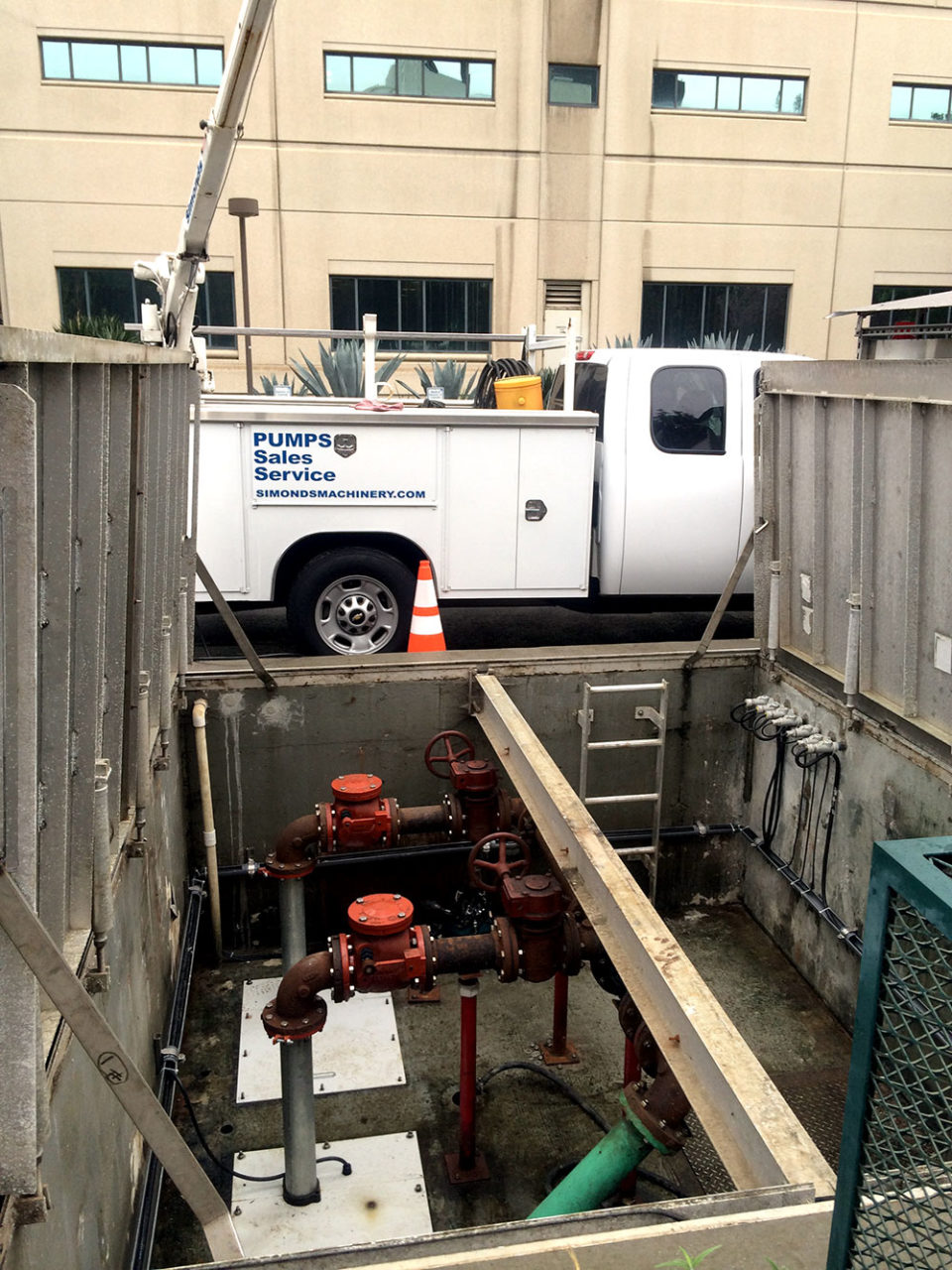Positive Water Treatment Procedures: Buying Long-Term Water Top Quality
Wiki Article
Recognizing the Key Elements of Effective Water Filtering Equipments

Value of Water Filtration Systems
Water filtration systems play a crucial function in making sure accessibility to clean and secure drinking water by properly removing pollutants and pollutants. These systems are important in dealing with the expanding concerns over water high quality and the possible health risks connected with consuming contaminated water. By utilizing numerous filtration mechanisms such as reverse osmosis, activated carbon, and UV sanitation, water filtration systems can effectively get rid of damaging substances like microorganisms, infections, heavy metals, and chemicals from the water.In addition, water purification systems aid to enhance the taste and odor of water by removing chlorine, debris, and various other pollutants that can influence its top quality. Well Pump Replacement. This enhancement in water quality not just makes it extra tasty however additionally urges individuals to consume alcohol a sufficient quantity of water daily, promoting far better hydration and overall wellness
Types of Filtering Elements

Physical filters are made to physically stress out pollutants from the water. These filters can be made of products like ceramic, carbon, or also sand, and they work by capturing particles bigger than the filter's pores as water travels through.
Chemical filters make use of various chemical procedures to get rid of contaminants from the water. Examples consist of triggered carbon filters, which adsorb contaminations, and turn around osmosis membrane layers, which make use of pressure to separate contaminants from the water.
Biological filters make use of living microorganisms like microorganisms or algae to break down raw material and toxins in the water. These filters are frequently used in wastewater treatment plants or all-natural water filtration systems.
Understanding the various types of filtration components is vital for picking the most suitable water filtering system for details purification needs.
Function of Sediment Filters
Debris filters play an important duty in water filtering systems by successfully catching strong bits put on hold in the water. These filters are commonly the first line of protection in a purification system, eliminating larger particles such as sand, silt, dust, and corrosion before the water relocates via finer filtering stages. By capturing these debris, the filters avoid them from reaching downstream parts, therefore extending the life-span and performance of the entire system.Disregarding this maintenance can lead to obstructing, decreased water circulation, and jeopardized purification effectiveness. On the whole, sediment filters are crucial elements that add significantly to the performance of water filtration systems.
Function of Turned On Carbon Filters
Playing a critical function in water purification systems, activated carbon filters are critical in getting rid of impurities and impurities from the water supply. As water passes through the filter, the turned on carbon holds and attracts onto the pollutants, making certain that the water that comes out on the various other side is cleaner and safer for usage.Triggered carbon filters are extremely reliable at boosting the preference and smell of water by reducing chemicals that can affect its high quality. Due to their versatility and reliability, triggered carbon filters are an essential element in guaranteeing that water is cleansed to the highest standards prior to getting to customers.
Recognizing Reverse Osmosis Solutions
Reverse osmosis systems are innovative water filtering systems that employ an advanced procedure to eliminate contaminants and pollutants from alcohol consumption water. These systems work by applying stress to the water, requiring it via a semi-permeable membrane. This membrane layer acts as an obstacle, permitting just distilled water molecules to travel through, while blocking larger particles such as minerals, chemicals, and various other contaminations. Because of this, the water that comes out beyond is considerably cleaner and more secure for usage.One secret advantage of reverse osmosis systems is their ability to remove a large range of impurities, consisting of straight from the source heavy metals, dissolved solids, germs, and viruses. This makes them very effective in improving the total quality and safety of drinking water. Furthermore, reverse osmosis systems are fairly low-maintenance and can be helpful hints mounted under the sink or in a main filtration system, offering practical accessibility to tidy water throughout the house. Overall, understanding exactly how reverse osmosis systems work can aid individuals make informed decisions regarding their water filtering requirements.
Final Thought
To conclude, reliable water purification systems are vital for guaranteeing clean and safe drinking water. The essential components of these systems include sediment filters, activated carbon filters, and reverse osmosis systems. By comprehending the function and role of each component, individuals can make enlightened choices when picking a water purification system. It is very important to prioritize the quality of water in order to advertise overall health and health.Water purification systems play a vital role in guaranteeing access to tidy and risk-free drinking water by effectively removing pollutants and contaminations. read the full info here By using numerous purification systems such as reverse osmosis, turned on carbon, and UV sanitation, water filtering systems can efficiently get rid of harmful compounds like microorganisms, viruses, hefty steels, and chemicals from the water supply.
Sediment filters play a critical role in water purification systems by effectively recording solid fragments suspended in the water (Water Treatment).Playing a crucial function in water filtering systems, turned on carbon filters are important in getting rid of impurities and pollutants from the water supply.Reverse osmosis systems are sophisticated water purification systems that employ a sophisticated procedure to get rid of contaminants and impurities from drinking water
Report this wiki page